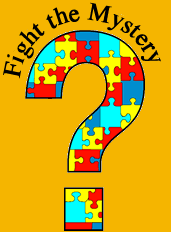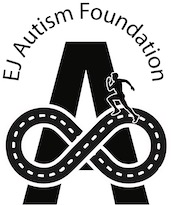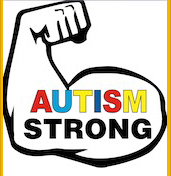          |
||
    |
EJ Autism Foundation In The News: Running for a Cause: PA's Way of Funding Autism Foundation
By DOUG SCOTT  Bea Huste-Petersen's two sons, Jack and Eric, don't look any different than other three- and four-year-old kids. In fact, it appears that they do the same things as most boys their age. Bea Huste-Petersen's two sons, Jack and Eric, don't look any different than other three- and four-year-old kids. In fact, it appears that they do the same things as most boys their age.But when Jack comes home from preschool, he likes to rip off his clothes and run around naked. Eric is an escape artist who, in an effort to run away, picks locks on the front door and climbs fences. Both Jack and Eric are autistic. "Autistic kids tend to have behavior issues and get angry. They are just two very strong-willed kids who provide me and my husband [Pat] with many challenges," said Huste-Petersen, a PA who works at Memorial Sloan-Kettering Cancer Center in New York. "Because they don't have any language [skills], autistic children don't like to socialize and they are unable to communicate with other children. There can be 20 kids over, and Jack and Eric will be by themselves, while the other 20 kids will all be playing with each other." Huste-Petersen said that with the help of teachers and the home services they receive from the Young Autistic Program at the Developmental Disabilities Institute in Medford, New York, Jack and Eric are getting "better and better and better." Jack now speaks at the same level as most four-year-olds. He has improved so much that he will start regular kindergarten next year. A year younger, Eric's future is still unknown, but at least Huste-Petersen knows that both boys are getting the very best care. That is not true for many other families with autistic children who don't have the same kind of autistic programs in their state or who fail to recognize the signs and symptoms of autism. For that reason, Huste-Petersen and her husband launched the EJ Autism Foundation last year. Named after her two sons, the nonprofit foundation raises money and awareness of autism through participation in the New York City Marathon. Both parents are experienced marathon runners. Bea ran the marathon in the 1990 qualifier for the U.S. Olympic team, but did not make it to the U.S. Olympic trials. Pat ran in the trials in 1988, but did not make the team. To raise money for their newly founded charity, Bea began training again and competed in the 2005 New York City Marathon, where she created a donor card and asked for sponsors. She collected $11,000 for the foundation. "I have been running all my life, and it has been a great way for me to get rid of stress, to fit into pants, and do something important for myself every day," explained Huste-Petersen, a 1997 graduate of the Weill Medical College of Cornell University PA Program. "My running helped me get into a good college [Kenyon College], my running put me on the team where I met my future husband, and now I am using running again as a way to get my message about autism across." Funds raised by the EJ Foundation will be used for three purposes. The first will go specifically to the Young Autistic Program and be spent as the program sees fit; ideally, however, it would be used to help offset the cost of teacher's salaries or to hire additional teachers. "Basically, you have three or four autistic kids in a classroom with one teacher, and that is just not going to cut it for an autistic child," Huste-Pet erson said. Monies will also be used to help families who are unable to afford specif ic equipment that will enable autistic children to learn and grow as well. An undisclosed amount will be donated to a yet-to-be-determined autism research organization. Huste-Petersen also hopes to contribute monies raised to autistic children who participate in the Special Olympics. According to the Autism Society of America, approximately one in every 166 children, or about 1.5 million Americans, are believed to have some form of autism. The society defines autism as a complex developmental disability that typically appears during the first three years of life as a result of a neurological disorder that affects the normal function of the brain, including development of skills governing social interaction and communications. With early diagnosis, children can benefit from specialized intervention programs like the Young Autism Program. That is why, Huste-Petersen said, the funds raised from their foundation are so important ? to create public awareness of autism. "When people fill out the donor card and say that they want to sponsor Bea Huste-Petersen for the New York City Marathon, it says that we are not only raising money to teach the basic concepts to autistic children, but to also support autism awareness," said Huste-Petersen. "With the flyer we hand out, we try and give people a quick education on exactly what autism is." Even as a PA , Huste-Petersen admitted that she did not know what autism was when it was first suggested that her first son might be autistic. "I remember with Jack, when we first started to notice that things were not quite right, he didn't respond to his name, and we thought that he was deaf," Huste-Petersen said. "So we gave him hearing tests and discovered that his hearing was fine, but that it must be something else that was going on. Somebody then suggested to me that he might be autistic, and I didn't know what that meant." She went on-line and learned about the characteristics of autism. "Oh my God, he's autistic," Huste-Petersen said she first thought after reading the material. "I remember telling my husband, and us being in denial. It was about a month and a half before we got help to investigate it. But once Jack was diagnosed, we were relieved, because we knew that they would be able to get him help." Huste-Petersen hopes that through the foundation she can help other families overcome the fear of realizing their child is autistic and also provide resources to assist them financially. Huste-Petersen plans to run again in the 2006 New York City Marathon for the EJ Autism Foundation and also create a 5K autism race in her East Islip, New York, community. "We wanted to do something, because we have been very, very fortunate in that we ha ve had all these wonderful services and wonderful people involved with our sons who are very committed and dedicated to them. But not everyone else is as fortunate as we are, even within our own community," said Huste-Peterson, who also has two daughters: Maggie, 6, and Joy, 18 months. "We wanted to give back and thank them, and we felt that the best way to do that was by raising money and giving it back to the [Young Autistic Program] that they go to and certainly by [assisting] people who are less fortunate than we." AAPA News January 30, 2006 Back to News Index  |
|
| Home - Our Mission | Our
Story | EJ
Autism In The News | Donate
Online Fund Raise | Mystery Gear | Increase Awareness | Contact Us | Jigsaw Run 2007 © Website Designed by  ViableVisions.com ViableVisions.com |
||
|
|